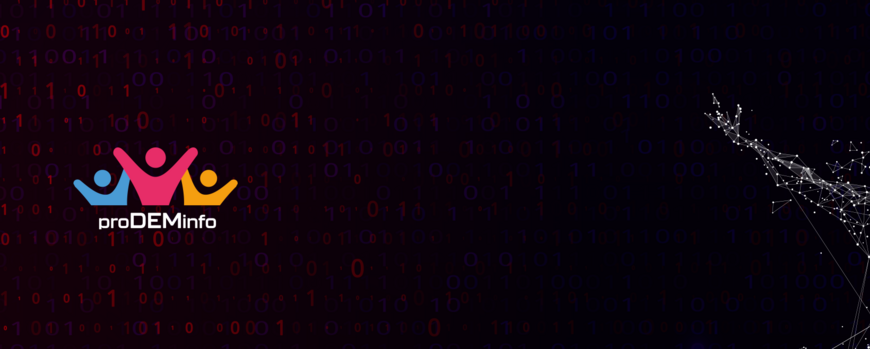PRODEMINFO - Protecting the Democratic Information Space in Europe
PRODEMINFO is an Advanced Grant from the European Research Council (ERC) that aims to gain a better understanding of how truth is perceived in an age of fake news and conspiracy theories. The project is a cooperation between the University of Bristol, the University of Konstanz and the University of Potsdam and previously the Graz University of Technology. The project duration is 5 years, from October 2021 to September 2026.
This project has received funding from the European Research Council (ERC) under the European Union’s Horizon 2020 research and innovation programme, (Grant agreement No. 101020961).
Projet description
Democracy is under threat. Populist movements—mainly but not exclusively on the political right—have pitted "the people" against a presumed "elite" that is variously constructed to include the judiciary, mainstream media, politicians, experts, and academics. PRODEMINFO builds on the realization that factual inaccuracy can be a political asset rather than a liability: Populist politicians may state obvious falsehoods to signal disregard for the "establishment" norm of honesty, thus identifying themselves as authentic champions of "the people." The rebranding of inaccuracy as authenticity reflects a profound shift in the underlying ontology of truth: Whereas liberal democracy is tied to a realist ontology of truth and a shared body of accepted knowledge, the populist ontology of truth is entirely constructivist and subjective. Understanding, documenting, and then addressing this ontological shift is crucial because it drastically changes the way in which one might confront misinformation—there is little point in correcting falsehoods if facts are not considered a relevant attribute of public discourse. PRODEMINFO will build tools to protect democracy in Europe by drawing a strategic arc from the threat arising from the insurgent populist ontology of truth to the development of protective solutions that can be rolled out at scale online.
The objectives of PRODEMINFO are (1) to understand contemporary misinformation in Europe and how it connects to people's tacit ontology of truth; (2) to develop countermessages based on inoculation theory that are sensitive to people's different ontologies (e.g. addressing authenticity rather than accuracy of political speech); and (3) to test such countermessages at scale on social media. PRODEMINFO will pursue these objectives by combining controlled behavioural and cognitive experimentation with "big data" analyses of social media, simulation modelling of behaviour online, and text modelling of large corpora.
The External Advisory Board (EAB)
- Kristina Lerman, Research Professor of Computer Science, University of Southern California
- Ralph Hertwig, Director, Center for Adaptive Rationality, Max-Planck-Institut for Human Development, Berlin
- Nina Witoszek, Senior Researcher, Centre for Development and the Environment, University of Oslo
Ethics advisers (also board members):
- Jeroen van den Hoven, Professor of Ethics and Technology, TU Delft
- Mark Alfano, Associate Professor, Department of Philosophy, Macquarie University
Recent publications
Simchon, A., Sutton, A., Edwards, M. & Lewandowsky, S. (2023). Online reading habits can reveal personality traits: towards detecting psychological microtargeting. PNAS Nexus, 2(6). https://doi.org/10.1093/pnasnexus/pgad191
Holford, D., Fasce, A., Tapper, K., Demko, M., Lewandowsky, S., Hahn, U., Abels, C. M., Al-Rawi, A., Alladin, S., Sonia Boender, T., Bruns, H., Fischer, H., Gilde, C., Hanel, P. H. P., Herzog, S. M., Kause, A., Lehmann, S., Nurse, M. S., Orr, C., … Wulf, M. (2023). Science Communication as a Collective Intelligence Endeavor: A Manifesto and Examples for Implementation. Science Communication.https://doi.org/10.1177/10755470231162634
Kozyreva, A., Herzog, S. M., Lewandowsky, S., Hertwig, R., Lorenz-Spreen, P., Leiser, M. & Reifler, J. (2023). Resolving content moderation dilemmas between free speech and harmful misinformation. Proceedings of the National Academy of Sciences, 120(7). https://doi.org/10.1073/pnas.2210666120
Prike, T., Reason, R., Ecker, U. K. H., Swire-Thompson, B., & Lewandowsky, S. (2023). Would I lie to you? Party affiliation is more important than Brexit in processing political misinformation. Royal Society Open Science, 10. https://doi.org/10.1098/rsos.220508

